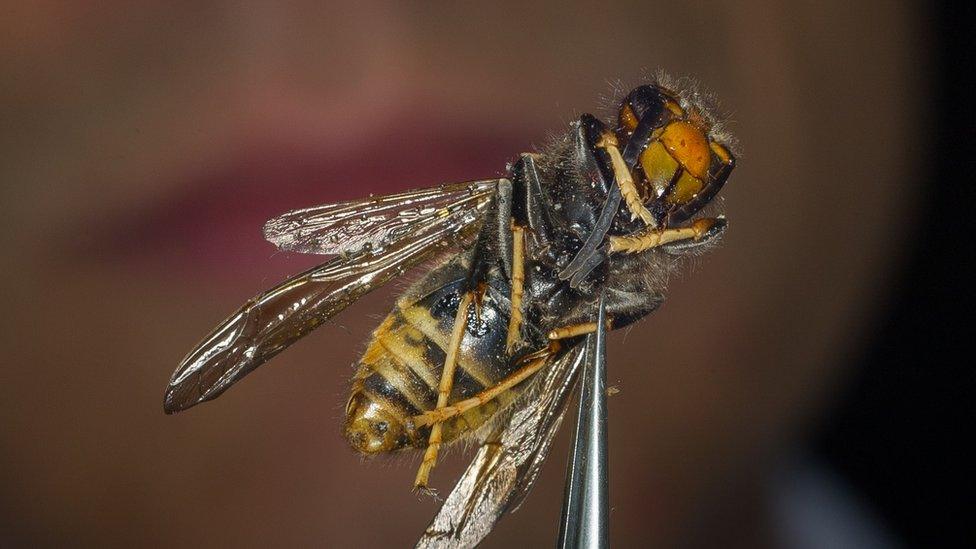Plan to trap Guernsey's Asian hornet queens
- Published
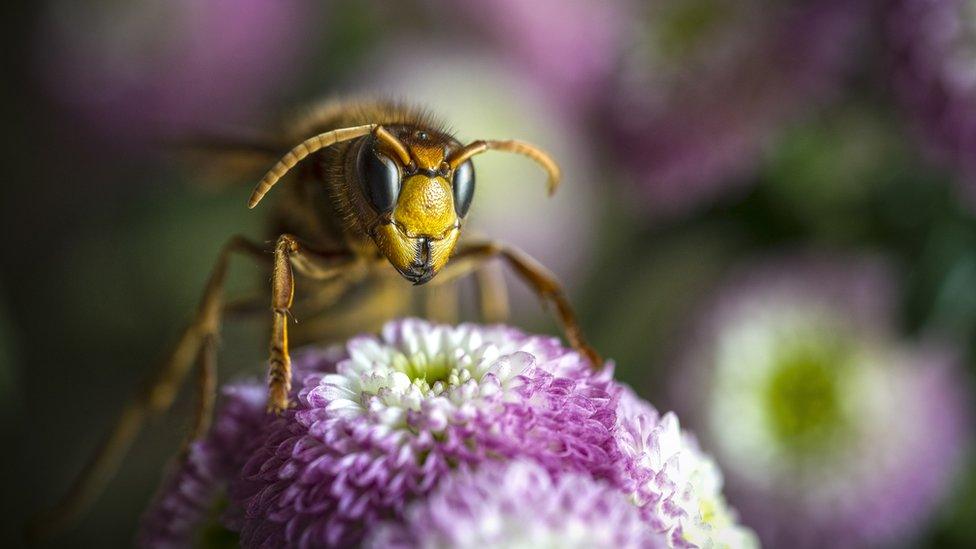
The hornet hovers outside honey bee hives and attacks and eats them
The States of Guernsey says it will try to capture and eradicate as many Asian hornet queens as it can when they emerge from hibernation next spring.
Authorities say the number of nests found on the island increased from two in 2017 to eight in 2018.
Asian hornets have been found in trees, hedges and a hedgehog house in Guernsey as well as a compost heap in Jersey.
A programme of "Spring Queening" was trialled this year in Alderney, with 55 queen hornets caught this spring.
Bait will be used that does not attract other insects, such as bumblebees and butterflies, and traps will be modified so that any smaller insects that are caught are able to escape.
The first sightings of Asian hornets in the Channel Islands were in Alderney in July 2016, and then Jersey in August last year.
Vespa velutina queens are up to 3cm (1.2in) in length and have a dark brown or black velvety body, bordered with a fine yellow band.
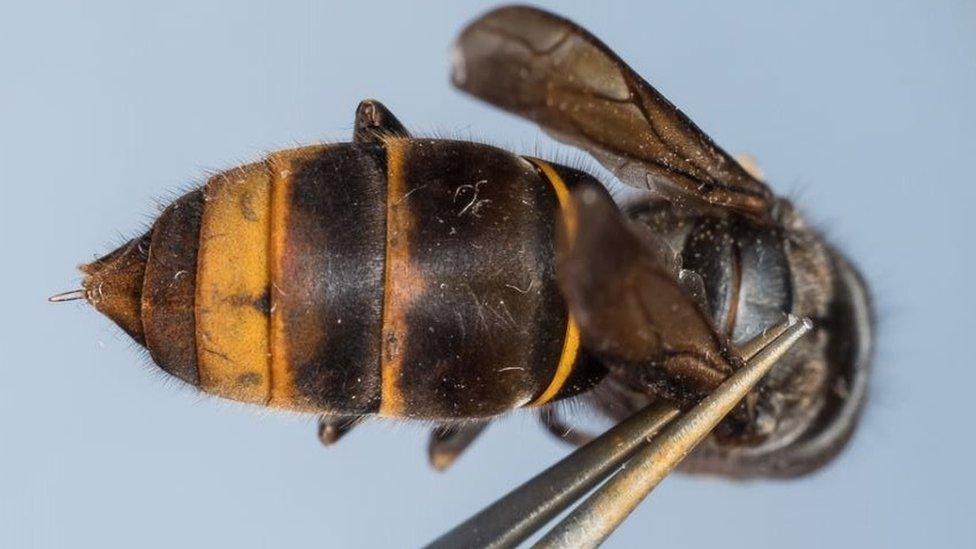
Asian hornets frequently nest high in trees but sometimes in hedges and even compost heaps
Biodiversity education officer at Environment Guernsey, Julia Henney, said the impact of invasive species on native wildlife was "second only to climate change".
"With the measures being recommended to reduce the likelihood of our native bees and butterflies being caught during the spring trapping for hornets, we're very optimistic that this will be a very positive programme for Guernsey's wildlife."

The spread of Asian hornets across Europe
Asian hornets: What's all the buzz about vespa velutina?
Asian hornets have spread through Europe since arriving in France in a consignment of pottery in 2004
In 2012 two nests were detected in northern Spain - it now has 10,000
The insects pose a threat to native insects and public health
On average, 30% of its diet is made up of honeybees
While an Asian hornet sting is not considered to be worse than that of a bee, hornets are aggressively defensive
One person was taken to hospital in Jersey this year after disturbing an Asian hornet nest

- Published4 July 2018
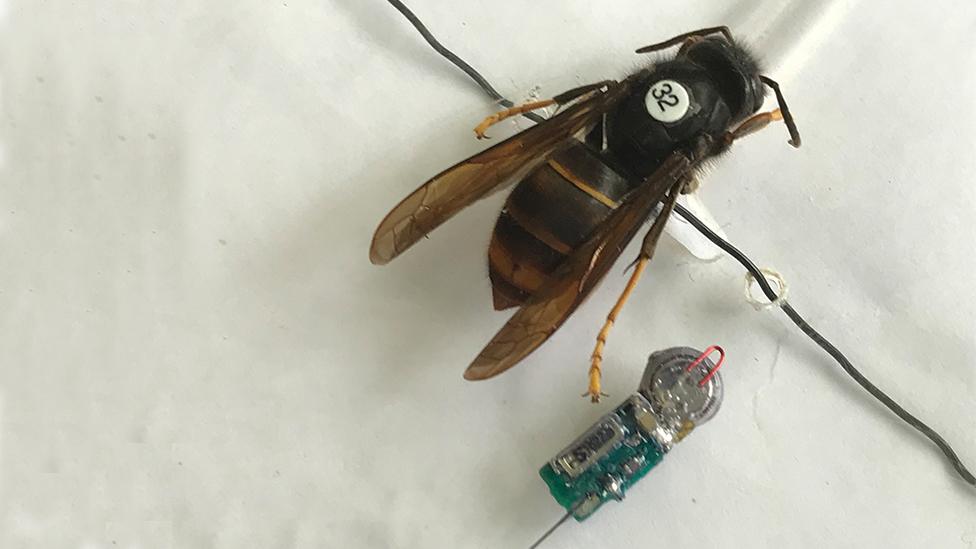
- Published21 July 2017
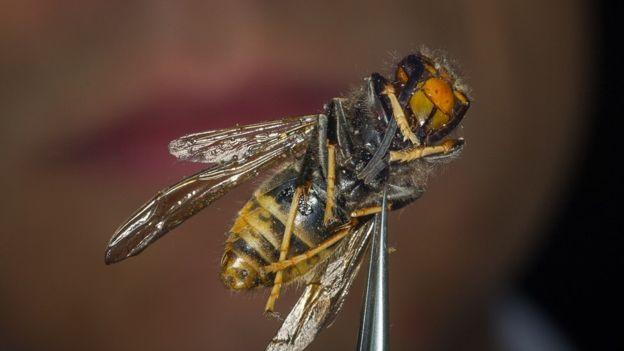
- Published22 July 2016
